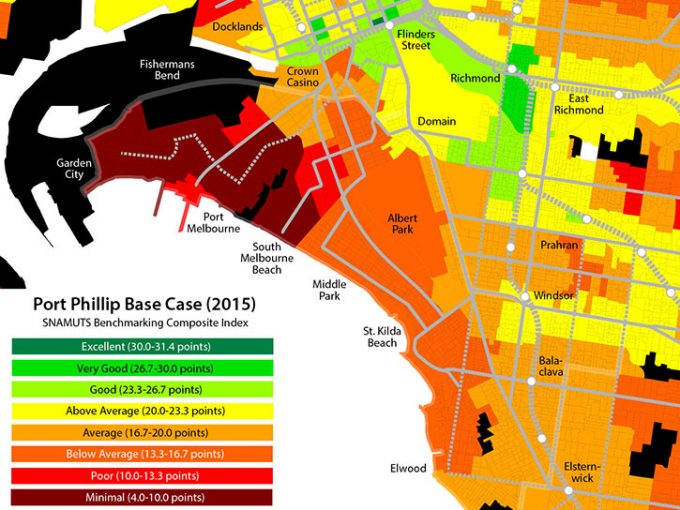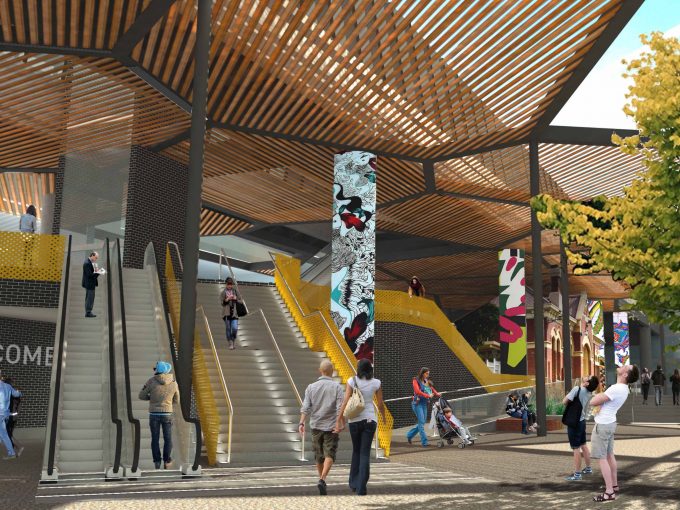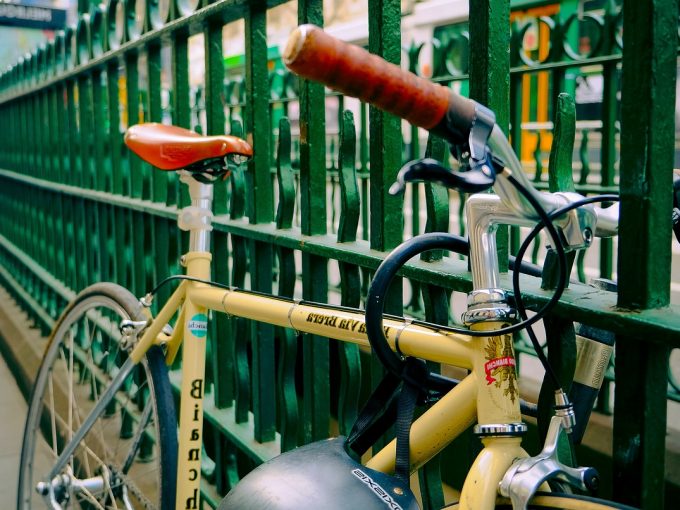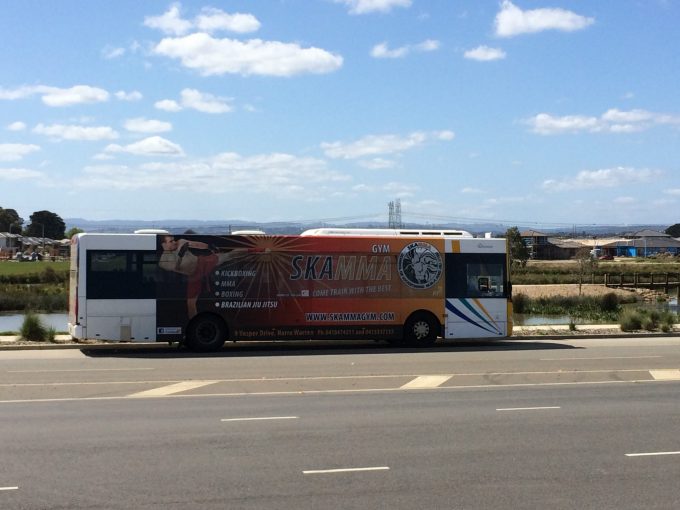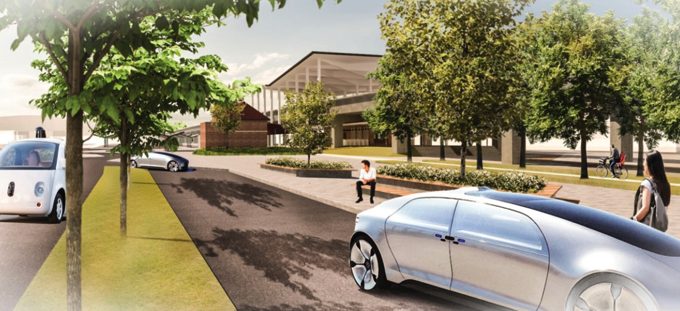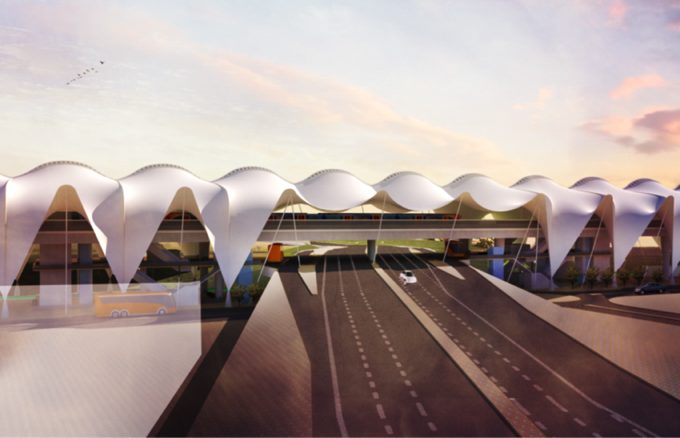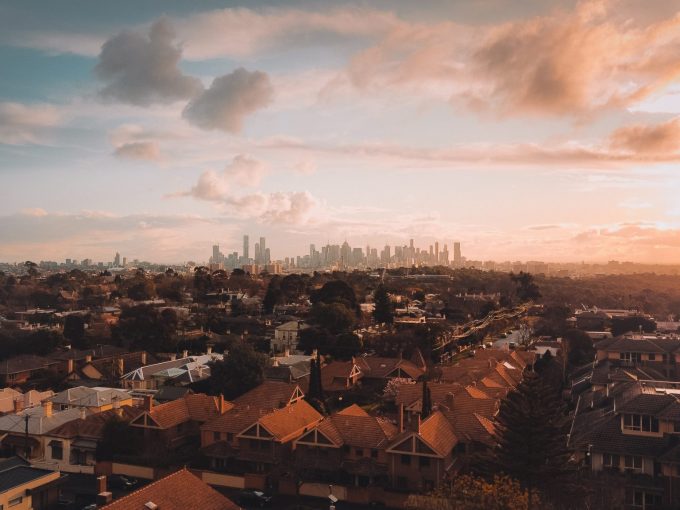Despite a host of disruptive new technologies entering Australia’s transport ecosystem, our planning, urban design, infrastructure and transport frameworks remain mired in a twentieth-century policy-making mindset.
After undergoing the harshest lockdowns in the country, how should Victoria spend its budget to bounce back? RMIT academics share their expert view on where best to splash the cash for the state’s COVID-19 recovery.
Australia’s economic recovery from COVID-19 has been better than predicted, so what can we expect from this year’s Federal Budget? RMIT academics share their expert view on where the cash can be splashed for the greatest benefit.
If the past year has made us more comfortable and confident with experimenting, all the better to help our cities meet the challenges ahead.
Local government collaboration with metropolitan governance in Australian cities must reform to better address urgent urban issues such as climate change action, population growth and urban sprawl, finds new AHURI research.
Fans across Melbourne are thrilled for the return of AFL, but with capacity caps on games and other restrictions on attendance, how will fans engage and experience the return of the AFL?
The South Australian and Victorian governments have announced, and New South Wales is considering, road user charges on electric vehicles.
As Victoria turns the corner, economic, social housing and urban planning experts point to three key shifts in the upcoming Victorian Budget.
New apartments are providing more parking than residents need, leading to smaller and fewer homes for higher prices. RMIT experts discuss how policymakers can get the car parking balance right.
The adversities of COVID-19 have no doubt changed the way we think about our environments. Here, our teachers discuss the role urban, regional and environmental planning has in shaping a post-pandemic future.
Climate change presents critical challenges for future development, sustainability and resilience across Melbourne. Here, our experts offer insights on how we can better prepare our outer suburbs.
From turning back the emissions clock to building more durable roads from old tyres, RMIT researchers are tackling today’s biggest challenges and developing solutions for a more sustainable world.
Modelling by RMIT researchers shows reconfiguring Melbourne’s bus routes to a grid network could save outer suburban commuters up to 15 minutes of travel time.
As AFL fans across the country get excited for the return of footy on Thursday night, there is still an air of nervous anticipation as to what lies ahead. How do we enjoy our national sport in a time of COVID-19?
As Australia re-opens, the bars, cafes and restaurants that give life to our streets face a tough ask: stay open and stay afloat with just a fraction of the customers.
New research shows almost one-third of app-based motorcycle taxi drivers in Vietnam have had a road crash, with an astounding 80% attributing the cause to their own risky driving.
The COVID-19 crisis reinforces the vital need for cities to protect food-producing rural areas on the urban fringe to retain options and avoid the risk of future shortages, RMIT urban experts warn.
Creating new co-working office spaces in our suburbs could be accessible to 97% of Melburnians with just a short ride or walk, helping manage risk post COVID-19, finds new RMIT research.
With global carbon emissions set to fall in the short-term due to coronavirus lockdowns, our experts look to long-term action needed to tackle climate change on Earth Day 2020.
Our experts respond to Australia's bushfires with perspectives on topics ranging from policy and planning, to community resilience, the mental health of first responders and the psychology of loss.
December 12 2019 marks 50 years since the landmark 1969 Transportation Plan. Here, we take a look back on the plan that brought Melbourne its network of freeways and roads, and how its legacy stacks up in 2019.
Like the modernist plans of its time, the 1969 Melbourne Metropolitan Transportation Plan was bold in ambition. Major motorways have been built across the city as a result of the plan.
On the 50th anniversary of the Melbourne Transportation Plan, we review the role of transport modelling as a planning tool. What are models now telling us about the future of Australian cities?
The 1969 Melbourne Transportation Plan was perhaps the most influential planning policy in the city’s history. Every freeway and major arterial road built since then, as well as many current freeway and tollway projects and proposals, stem from this plan.
It often gets a bad rap, but Canberra could hold the secret to planning for Australia’s growing population and successfully decentralising our major cities, researchers say.
Average daily commuting times across Australia also increased from about 49 minutes in 2002 to almost one hour in 2017 according to the latest Household, Income and Labour Dynamics in Australia (HILDA).
Governments are looking to fast rail services to regional cities to relieve population pressures in major cities, but will subsidising metropolitan workers to live in cheaper regional towns have a positive economic effect?
In Australia, more than 9 million people commute to work every weekday. The distance they travel and how they get there – car, public transport, cycling or walking – can influence their well-being and performance at work.
Parking is a fiery issue in Australian cities. That’s because cars dominate our cities, supported by decades of unbalanced planning decisions favouring space for cars over other land uses or forms of transport.
Wondering why you can’t get a seat on the train? Perhaps it’s because we don’t actually know how many extra people will use public transport when new building developments are planned.
Innovative data use and modelling is helping uncover important questions around social justice in our urban vehicle fleets.
As Melbourne grows, we need to better plan how we build healthy, equitable and liveable cities. Here four RMIT researchers talk about how their work is helping deliver better cities.
With the Victorian Government releasing 50,000 housing lots for 12 new suburbs on Melbourne’s urban fringe, how can we ensure new areas like these are liveable and thrive?
More people living in Melbourne means more trips across our transport network. RMIT experts share their views on how to plan for this pressure and keep our city moving.
Congestion is a key issue affecting Victoria’s transport sector. Here, our experts provide their insights on how we can better manage our roads.
Here our experts share everything you need to know about how policymakers can make Melbourne more liveable, improve our liveability, reduce commuter crushes and increase housing affordability.
A team of researchers at RMIT University are seeking interview participants for the project “Early delivery of equitable and healthy transport options in new suburbs: Critical reform and tools”.
How is movement and place represented across Melbourne’s tram network?
With Australia’s population reaching 25 million this month, the liveability of our cities has become critically important for our national prosperity and sustainability.
Australia’s population clock is, according to the Australian Bureau of Statistics, steadily ticking away at an overall total population increase of one person every 1 minute and 23 seconds.
It’s a familiar story in Australian cities: a new apartment building is proposed, and debate soon follows about whether the new residents will have enough public transport or coffee shops. Just kidding.
New research by an RMIT urban academic has revealed that up to 40 per cent of apartment parking in central areas of Melbourne are going unused.
This third edition of our dedicated Centre magazine The Urban Observer, is testament to the strength of our research effort. This issue reports a remarkable volume of thinking and analysis across a diverse array of topics.
If one were to conduct an opinion poll among all the urban planners currently employed by local government authorities across metropolitan Melbourne with regard to the issue of state government regulation and interference, one might be reasonably safe to assert that the survey response would be ‘there is too much.’
With cars stationary 95 percent of the time, car parking is essential to car-based travel. Parking is also a widespread and controversial policy concern in planning and land use decisions.
Experts from RMIT are available to talk to media from 6am this morning about a range of topics and issues relating to the 2018-19 State Budget.
In Melbourne, the politics of this debate has so far prevented a railway from being built, because it is not possible for one line to meet all of the landside access needs of the airport.
Urban researchers are calling for a second Melbourne Metro Rail, warning the current project won’t meet the expected capacity demand unless the city plans for more rail line infrastructure.
RMIT University infrastructure and urban planning expert Professor Jago Dodson says a new rail link for Melbourne’s airport is welcome news, but needs to be part of a broader transport plan if it is to have major benefit.
RMIT University infrastructure expert Dr Ian Woodcock says the Victorian projects in Infrastructure Australia’s 2018 priority list will “lock Melburnians into increasingly toll-paying car dependence”.
A new report examining transformational urban projects across Australia aims to provide councils experiencing rapid population growth a guide on how to restructure economic and community functions.
Some 600 climate scientists, urban researchers, policymakers and practitioners attended the International Panel on Climate Change’s (IPCC) first ever conference on cities last week.
Is there a case for revisiting the idea of new cities for Australia in the light of recent population projections and resurgent debate about the implications of a big Australia?
Infrastructure Australia has called for metropolitan-scale governance of Australia’s largest cities. The new report by the Commonwealth’s statutory infrastructure agency, which sought to scope out the prospects for Sydney and Melbourne over the next 25 years, identifies integrated governance and leadership as keys to success.
Car parking is expected but often unnoticed, taking up surprisingly large proportions of city space. A parking bay occupies at least 13 square metres – some codes specify up to 30 square metres including access ways.
Like the controversial East West Link, this project has no electoral mandate, and was rushed through the formal planning processes. It’s also part of a trend seen in other Australian states for projects to be announced before alternative planning options are considered.
The West Gate Tunnel Project could worsen Melbourne’s traffic congestion, increase car dependency and should be rolled back, according to a new report from six leading planning academics.
Urban greening projects in Melbourne’s west are contributing to making the region cooler, more pleasant and healthier to live in and travel through. The key to this success is the Greening the West initiative.
Research exploring the impact of a bus route a new housing development on Melbourne’s south-east growth corridor has revealed the positive effects on community well being with the early delivery of bus services in new greenfield developments.
New research by RMIT urban academics calls for greater collaboration between urban planners and social workers to deal with new and emerging forms of poverty and spatial disadvantages affecting Australians.
Car parking - we all use it and expect it everywhere, but the hidden cost it has on our cities is huge.
In Sydney and Melbourne, the squeeze is on. Population is booming; house prices are still rising; roads and trains are congested. Australian governments generally have ignored the benefits of relating metropolitan and regional planning.
Melburnians have been talking about a train to Tullamarine Airport since well before it opened. Now Prime Minister Malcolm Turnbull has made clear his enthusiasm for an airport rail line, with or without state government support.
At the dawn of the 21st century, planners around the world will consider a new agenda for cities. They would shrug off the dimly remembered nightmare of snaking concrete highways and smog-occluded horizons.
The Vice-Chancellor’s Research Fellows are researchers with an excellent track record who can make a significant contribution to RMIT's research priority areas.
As with Uber and the taxi industry, public sector planners and regulators will be forced to respond to the anger of those displaced by the new products the IT and automobile industries will bring to the market. But can we afford to wait?
This is the final article in our series Making Cities Work. It considers the problems of providing critical infrastructure and how we might produce the innovations and reforms needed to meet 21st-century needs and challenges.
Dr Stephen Rowley discusses his new book 'The Victorian Planning System' – the perfect introduction to the Victorian planning systems for new planners and the wider public who need to deal with the planning system.
The plane crash at Essendon Airport last week shows the folly of allowing runways to co-exist with commercial development.
A collaborative research project between RMIT University and the University of Melbourne explores new ways to improve the integration of public transport and urban design in Melbourne.
There has been no shortage of ideas about how to spend the A$9.7 billion the Victorian government will receive from selling a 50-year lease for the Port of Melbourne.
RMIT Centre for Urban Research launches a new book, introducing interactive decision-making tool to incorporate greater accessibility for Australia’s public transport infrastructure.
Melbourne has been named the world’s most liveable city again, but is it really? Environment and planning professor Michael Buxton explains why Melbourne is at risk of losing its liveable status.
Director of the RMIT Centre for Urban Research Professor Jago Dodson is available to talk about the State Government’s proposal to spend the proceeds of the $9.7 billion deal to lease the Port of Melbourne.
RMIT Centre for Urban Research together with Rail Futures launch a new landmark report calling for major investment in Victoria's regional rail system to meet the state’s future challenges.
A new book by RMIT urban planning experts delves into our city’s past to present a citizen’s handbook that unlocks the potential for shaping Melbourne's future.
The Victorian State Government has committed to a number of major infrastructure projects for the state, but what’s the plan for Melbourne transport and how do these projects fit in?
Long-distance commuting may help promote the development of regional cities by boosting local populations, skills and income.
The Conversation’s experts respond to what the Coalition’s agenda will mean for key policy areas.
CUR PhD student Todd Denham is investigating changing commuter trends for people travelling from regional Victoria to Melbourne for work.
With Melbourne’s population moving beyond four million, significant challenges and opportunities for planning, designing and managing our city arise. How can you help urban environments adapt to meet the future needs of our population?
This is an uninspiring budget for urban infrastructure.
In providing for the well-being of the next three million urban Australians, we need to take unvarnished stock of our situation.
Level crossing removals should be part of a total picture for an effective transport system and “skytrains” are the best way to do this, according to RMIT and Melbourne University researchers.
Improved public transport has long been a high priority among Victorian voters however; the recent announcement of the $1.6 billion project to remove nine level crossings between Caulfield and Dandenong has not been met with the expected enthusiasm.
The Australian tax debate has placed negative gearing under scrutiny.
Tensions are rising in Melbourne over plans to use elevated rail to remove suburban level crossings.
Residents of Australian cities are needed to take part in RMIT University research to better understand residential car parking habits, wants and needs.
For Australian cities to be competitive, productive and economically sustainable, they need to attract the best human talent, Lucy Turnbull has told a conference at RMIT.
Improving how cities work is critical for Australia's future, according to the new director of RMIT's Centre for Urban Research (CUR), Professor Jago Dodson.
Community concern can be ignored when government considers transport planning, but one RMIT researcher is delving deeper into the issue.
